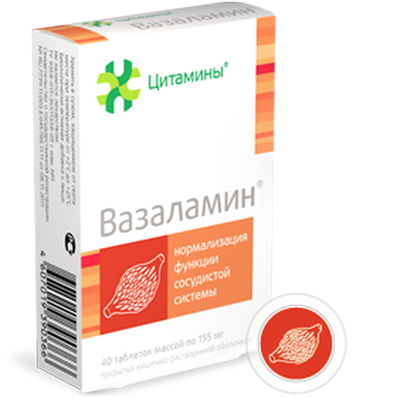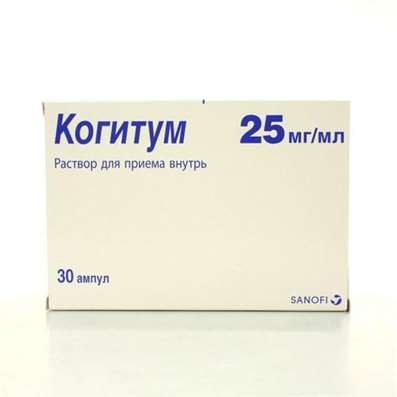Logotherapy and existential analysis
15 Dec 2016
About psychotherapeutic methods, which focuses on the search for the meaning of being a man
About the support drug therapy for neuroses
Beta-phenyl-isopropylamine sulfate - a drug that has the trade name "Benzedrine" - is ephedrine-like substance that acts primarily on the central nervous system, but it has virtually no effect on the autonomic system; initially quite successfully used for the treatment of narcolepsy and postencephalitic parkinsonism. Later attempts to use the euphoric effect of the drug, discovered by Nathanson and Davidoff and Reyfenshteynom in studies in healthy subjects and in the treatment of depressive states (Wilbur, McLean and Allen). Such attempts have shown that in cases with a predominance of psychomotor agitation, without inhibitions about 70% achieved a positive effect, but only in the initial stages of treatment (Mayo Clinic). Following Guttman and Sargent Myerson comes to the following conclusion: "In certain cases, neurosis associated with depression, fatigue and anhedonia, as well as in certain cases of psychosis of the same general type Benzedrine sulphate has a positive effect."
Our own experience with clinical psychosis, suggests Benzedrine valuable addition to the doctor's toolbox, which is traditionally used to treat melancholy. After the classical opiate therapy at our disposal only a means to eliminate fear, while the other is the most important symptom, braking, almost defies our influence. These are the components of the complex symptoms of melancholy, as far as we can tell, provide a selective response to treatment Benzedrine. Since in cases where inhibition determines the clinical picture of the disease, it is characterized by a typical diurnal variations with the onset of evening remission, under the influence of Benzedrine we were able to observe a peculiar antipositions daily fluctuations (the shift to an earlier date), when during the morning taking the drug the weakening of melancholic stupor, which usually occurs in the patient only in the evening, sometimes observed before lunch. In contrast, the impact on Benzedrine melancholic mood, ie depression, as such, it seems doubtful to me; sometimes there is more the impression that this side effect, since in these cases there is no reactive component, namely the affective response to braking.
To improve mental and behavior ability – Cortexin, Cogitum, Picamilon, Noopept, Semax, Phenotropil would help.
Schilder recently tried to "get a better understanding of the psychological effects of Benzedrine", following a number of selected cases, and they caused Benzedrine "structural changes" I "," who studied in the context of them as formulated by pharmaco-psychoanalysis. The results of his research, he concludes thus: "the drug is definitely not cure neurosis, but useful at the level of symptomatic treatment." We ourselves would like, based on his own experience some cases, exposed primarily psychotherapeutic treatment, speak in favor of the point of view of the above quoted.
Case 1. RS, a patient 43 years. Parents - cousins. Mother distinguished thoroughness and temper; older brother pedantic and overly self-critical, apparently suffers from obsessive repetition and frequent feeling as if he had lost something. The younger brother of banal "neurotic." The patient herself already as a child experienced some symptoms of obsessive-compulsive disorders, and now - with severe obsessive-compulsive disorder obsessive repetition, against compulsive washing. Passed few courses of treatment, including psychotherapy; nevertheless the patient's condition steadily worsened, the patient has taken even more suicide attempts. She suffers from a sense of what else did not have time to do much; thus demonstrating a lack of a sense of the evidence: "I have to do something again, although I know that has done it right." On the sensory level she feels some unrealized precipitate!
The first thing a patient is recommended to learn to distinguish between obsessive-neurotic impulses and common intention, and then distance themselves from neurotic manifestations. Later, estimating the distance, as if she learns to bring these neurotic bouts of absurdity, in other words, to deprive them of feeding, for example, like this: "I am afraid that not thoroughly washed your hands? For example, they have me do not even stained - and I want to hand are much messier "Instead of trying to overcome the impulses of obsessive-compulsive disorder (every action causes a counter!) - The patient is trying to overcome neuroses, translating them into a joke that helps her distance - and overcome them. The patient is reviewing all of its world: it shows so typical of the neurotic pursuit of one hundred percent, absolute reliability in recognizing and addressing generated by the lack of a sense of obvious, deep instinctive uncertainty.
However, since in reality a wholly unattainable, it is limited to specific situations - such as those associated with hands cleanliness, order, in the apartment, and so requires an understanding of the mosaic of life, willingness to take risks and still perform an action, whereas neurosis, on the other hand, is likened to the case.. which simultaneously represents both a burden and protection. The value of the latter aspect is first discussed with the patient in theory, but the next time she spontaneously (!) Spoke about his "suspicion" that sometimes neurosis served her usual excuse. After two weeks of treatment, there are clear improvements: the patient more confident mastering the technique correct attitude toward obsessive-neurotic momentum and learns to accept full responsibility if you do not do these impulses, the attitude towards them. She soon learned to consider as their "triumphs" over-obsessive neurotic impulses - in any case, is short and infrequent - more important than the discomfort that arises from the opposition of impulses that remain intractable. At this stage of treatment - three weeks after the start of the course - the patient takes her appointed Benzedrine.
Describing the general feeling of the drug, the patient also referred to this feeling - it seemed that everything works out her lighter mood improves, "I saw it all seemed as through rose-colored glasses." In the evening, playing bridge, she looked fresher than ever in this time of day. Then she says: "It seems to me as if was the best all to see, as if my eyes had better visual acuity increased." During this period, the patient experienced a stroke of bad luck, which suffered a remarkable calm and unruffled: "At that time [under the influence of Benzedrine] I could not accept this situation in such dark colors." Then: "The work [in the house] Can not I feel better - by improving mood (!)." As for the specific effect of the drug on the repetition compulsion - or more precisely, on the patient's attitude to this disorder - the patient indicates that she is now better at "assert" that manages it better, she learned to treat obsessive repetition with humor and fortitude. Those techniques which she learned to psychotherapeutic sessions, began to operate for longer; moreover, it has become easier to apply. Currently, the patient is very optimistic, she feels that she can "outgrow this problem - so that I will pay attention not so much on ourselves, but on what is happening around me. Earlier, I respectfully perceived his obsessive-compulsive disorder, and now I treat it with boldness. "
The patient feels that the "changed" and could "only to achieve." Now the patient is recommended to reasonably use the burst of energy that provided the drug to her. We can say that therapy allowed her to master the weapon to combat neurosis, taught her how to fence the blade. The drug is at the same time served as a doping, which gave her a boost of energy. The incentive, which she won thanks to Benzedrine, was to prepare it for further improvement; being on the rise, it must ensure that does not lose its high spirits. Indeed, over the next two weeks of treatment, when it takes on a daily basis one or two tablets Benzedrine, it is increasingly possible to "overcome the temptation of a neurosis (eg, resist compulsion to wash your hands)."
It even feels as if her neurotic representation (for example: "I have too dirty hands") have become more vague! Finally, the relative success of the saved and when it no longer receives Benzedrine; the patient can not completely distance himself from the obsessive neurotic impulses without difficulty: "I - here, there is an obsessive desire. Neurosis gives me orders, but I must not give in to them; neurosis because he can not wash your hands, do it, admit it ... I had to. " At this stage, treatment is discontinued for other reasons.
Case 2. Patient S., 41 years old. He came to the reception immediately after were not successful course of psychoanalysis, or perhaps just for advice, since a few days later must return home (abroad). Due to the unsuccessful outcome of psychoanalysis, to which the patient had high expectations, the patient is in such despair that he seriously thought about suicide and has even carries in his pocket a farewell note. For 15 years, the patient suffers from severe symptoms of obsessive-compulsive disorder. Recently, he has been worsening. One gets the picture is extremely fettered man; even his fight against obsessions seems seizure. Experience has taught the patient, above all, the fact that this struggle, the attack against the manifestations of obsessive-compulsive disorder only increase disorder, and therefore - and the torment of the patient. Therefore, it tends to the contrary, to give vent to his ailment. Already because of the lack of time available - the patient simply postpones departure the next day, another day, etc. -.. From the beginning we disclaim any analysis of symptoms and try to just change his attitude towards neurosis mechanisms.
Indeed, a couple of days managed to persuade the patient to accept the fact that he has come in fits of obsessive-compulsive disorder, whereby not only the first time turned to achieve significant overall mental relief; Moreover, at the same time decreased significantly and began to pass comorbid depressive thoughts. This psychological treatment accompanied by medical support using Benzedrine. The patient admitted that after that he felt more courageous, enthusiastic, relieved, wrote his wife a letter and optimistic even thought about how to get back to work in their specialty. On the third day he was just beaming with joy, she said that morning spent an hour with absolutely no obsessions, which he could not for at least the last ten years! Then he turns out - obviously, not least thanks to the action of Benzedrine - more confident to distance themselves from obsessive-neurotic ideas and ignore them, to live, not paying attention to them. He is struggling with these ideas, treating them with humor and maintaining a laid-back state of mind, no longer trying to attack them and thus get stuck on them. Instead, he learns to ignore them. It adheres to such an analogy: Suppose you barking stray dogs - if you step on it, it will bark even angrier. If we ignore it, it will soon subside. At the same time, you can learn how to specifically listen to the barking, which after a while begins to attract no more attention than the ticking of a wall clock.
Benzedrine has justified itself, and in this case, the amplifier psychotherapeutic treatment. There is such a situation, like I gave the patient struggling against obsessions, a latent push, whereas previously, in the framework of the psychotherapeutic treatment, we gave the patient a weapon, the right to combat neurosis. should also be noted in the framework epicrisis that for a long time after returning home she continued to correspond with us and reported that he feels quite well, happy and, despite the adverse external circumstances, still maintains the right attitude to bouts of compulsive neurosis, assimilated to psychotherapeutic sessions. He believes that such work on it is easier Benzedrine, which he continues to take.
Case 3. Patient F. B., 24 years old. Stuttered since childhood (Cogitum, Cortexin, Phenylpiracetam could help with stuttering). Two relatives also stutter. We are taught to the patient what is it - this is nothing like thinking out loud. He has only to correctly tune into spoken thoughts - then it pours like automatically, he can think about what he was saying, not how to say. On the other hand, draw attention to the form of speech - and not to the content of thoughts - is, first, the tightness in the speech, and secondly - the inability to concentrate on what you think. Predisposition to speech violation, he could and should have been compensated for by appropriate training, which were assigned to it in the future. The patient had to relax with the help of exercises developed by IG Schultz: breath - breathe out loud - "Eating air" - speech. These exercises, in that order, and the patient performs at home. Soon, he tells about the success: he was able to achieve the correct installation to the speech act, "even without my will ... I just said." It was just enough to voice thoughts and get his mouth to speak.
To combat the continuing general shyness is recommended to begin to take action against the fear of speaking and to support sociability itself. "Does anyone speak prohibits, speaking terrible?" If it is necessary to risk failure, but in such a case to replace them can come later success, and fear of speaking will finally be silenced. Even in the game of roulette are needed risky bets if the amount to be multiplied many times ... In the next stage of treatment the patient is already complaining about the feeling of fear overcomes him when - by the way, success! - Infusion into society; obviously, now he is afraid of the consequences of contact with life, the loss of his "splendid isolation." He understands that now replace irrational existential fear must come to overcome his conscious. At this stage, the patient is assigned Benzedrine.
After a few days on the basis of notes being conducted on the basis of a diary, he said that after taking the first pill he had better hold a phone conversation - whereas previously it would have clearly caused him discomfort. Moreover, a few hours after taking the drug, on the evening meetings, he talked a lot calmer and more confident. As a side effect, he points out: heart palpitations, depression, disturbance of nighttime sleep. Later, he took only half a tablet after a meal, and then the clock would be "in shape" when he had to participate in a conversation or be social. As a result, the patient reports a profound effect, manifested primarily in speech, the essence of which is as follows: the feeling of "shame" disappears and "retardation" is weakened, however acute verbiage ( "verbal diarrhea") of the patient at the same time does not arise. In addition, the effect of the drug has a positive effect on overall health. The improvements are saved.
Case 4. Patient FV, 37 years old. The clinical picture is a depression with psychomotor inhibition, with all other aspects of behavior are in perfect order, as well as a train of thought. Subjectively, the patient feels noticeably sick, also feel fear, guilt and inferiority and a tendency to self-flagellation; hallucinations are not traced, paranoid ideas - only thobbling nature. Presumably this is the diagnosis: recurrent bouts of depression on the background of schizoid psychopathy. The predominant symptom in this case - depersonalization; the patient complains: "I have become a mere shadow of his former self ... Fata Morgana". The only form of being-in-the-world, which still feels ill, he is experienced as one's own inferiority. "I am depressed, that is literally flattened: of three-dimensional creatures I got a flat, two-dimensional." A sense of inferiority relates primarily to experience meaning: "a feeling as if I plugged in power, fueled my life force." A sense of inferiority affects cognitive acts. "It seems that I have no intuitive idea, it is a sphere that half-chaotic, where something occurs to randomly."
More accurately described intentional disorder: "I have to mind their way to the touch, as if I was spiritually blind, from one mental image to another. Spiritually I seemed to cling to them. " Further, also described disorder activity in the narrower sense of the word, "all that I do, some ethereal, unreal, such imitation, as if I were - a beast that only reproduces noted by earlier human actions, those that he can not remember." The patient also experienced a "flawed spiritual synthesis," ie, "a feeling of complete collapse of the meaning of existence" (as Kambrielyu): "I do not have a continuous course of time ... as though spiritually I am from screaming fragments of mosaic that crumble when there is no bonding between them solution ... or as if I - broken string of pearls. " Individual recognition of the patient indicate the presence of "hypotension consciousness" (on tibia): "I feel the lethargy, prolixity ... as if I worked out the whole resource, like a pocket watch, who jumped off the drive spring." Finally, experienced alienation perceived world (loss of sense of reality), in particular the change in the perception of his own body: the patient particularly complained about the emerging times trigeminal neuralgia, not so much pain as such, but rather on the fact that they were perceived not as before. "My arm, my voice seems to me strange. I like not have a proper attitude to things, to the subject, as if things have ceased to be objects ... everything seems to remain the same, but at the same time as if reflected in a mirror: it became paler, right and left side are reversed. " He himself feels "a violin without a deck." The patient complains of a feeling of "lack of substrate," before the world was a colorful, "and has now become a black-and-white."
A patient once appointed Benzedrine, on an experimental basis. Later, he begins to take all half a tablet after a meal, which is caused by appearing in his unpleasant side effects (blood pressure by Scipione Riva-Rocci 130/90 mm Hg, with a long functional cardiac disorder..!): Dizziness, feeling of tension, pressure, etc. . n., which later forced him to abandon the positive changes that provide the drug. Although from a therapeutic point of view, these effects could only be welcomed, the organization of this kind of psychological concrete patient the more remarkable from the experimental point of view. The patient (! Master of introspection and introspective language) could be described as - excluding normally observed in such cases, explicit physical and spiritual courage - "strongly weakened" a sense of alienation perceived world, to such an extent that it was out of reach for many years. Thinking has become "much more accurate and precise," and the patient felt "a spiritual rise - to a certain extent increased presence of mind." "Improving the mental abilities" persisted for up to three hours after taking half a tablet. The patient describes a state of "as a kind of intoxication, as if I had a second breath ... I like activated, I felt the need for something to engage and talk."
Benzedrine can only be used for the symptomatic treatment of certain neuroses, and confirmed on the basis of our own experience; there are two cases of obsessive-compulsive disorder, as well as one case of stuttering and one case of depersonalization. It is shown as a supporting drug benzedrinic therapy may complement psychotherapy, however, the drug therapy plays only the role of a temporary doping facilitates patient his fight, then as a weapon to fight this patient has already had to first obtain from the therapist's hands.

 Cart
Cart





